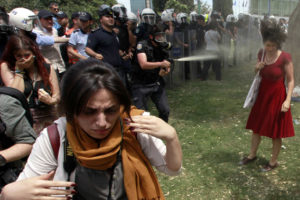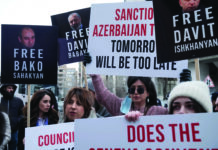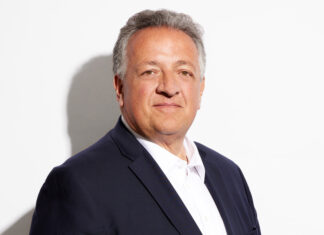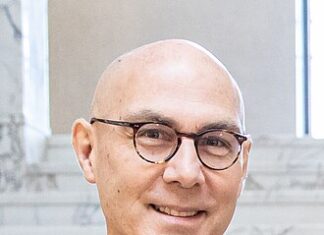 At Least Two Dead, Thousands Injured after Police Crackdown
At Least Two Dead, Thousands Injured after Police Crackdown
By Alexandra Hudson and Jonathon Burch
ISTANBUL/ANKARA (Reuters) — Turkey’s deputy prime minister apologized on Tuesday for “excessive violence” by police in an effort to defuse days of unrest, comments which contrasted sharply with Prime Minister Recep Tayyip Erdogan’s defiant dismissal of the protesters.
With Erdogan abroad and strikes and demonstrations still rumbling on after five days, Deputy Prime Minister Bulent Arinc sought to assuage some of the anger at the government’s initial hardline response to what began as a sit-in against plans to build on an Istanbul park.
“The excessive violence that was used in the first instance against those who were behaving with respect for the environment is wrong and unfair,” Arinc told a news conference in the capital Ankara. “I apologize to those citizens.”
“But,” he added, “I don’t think we owe an apology to those who have caused damage in the streets and tried to prevent people’s freedom.”








